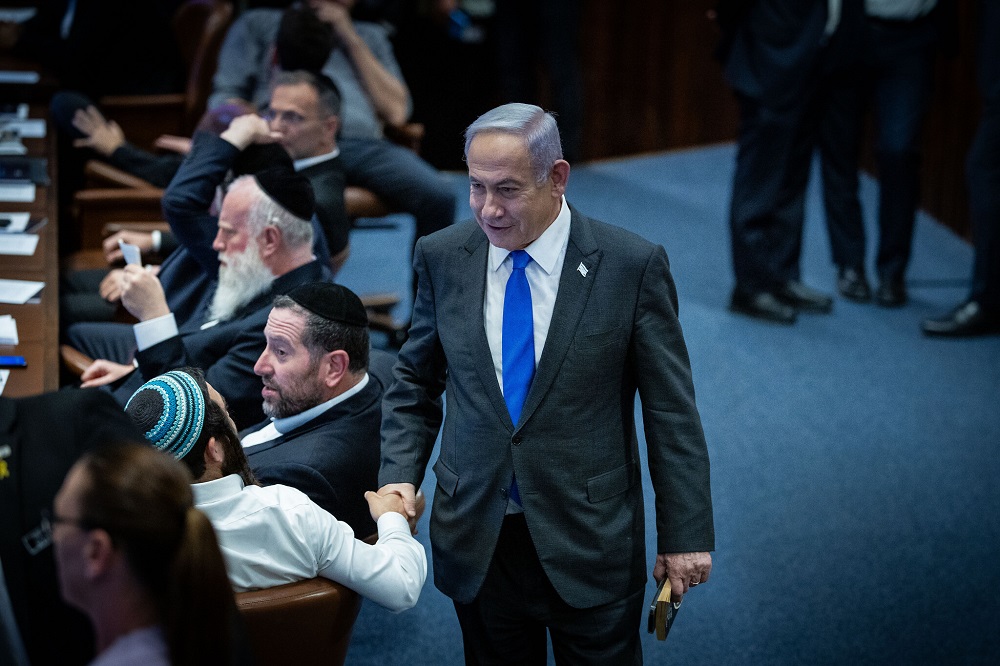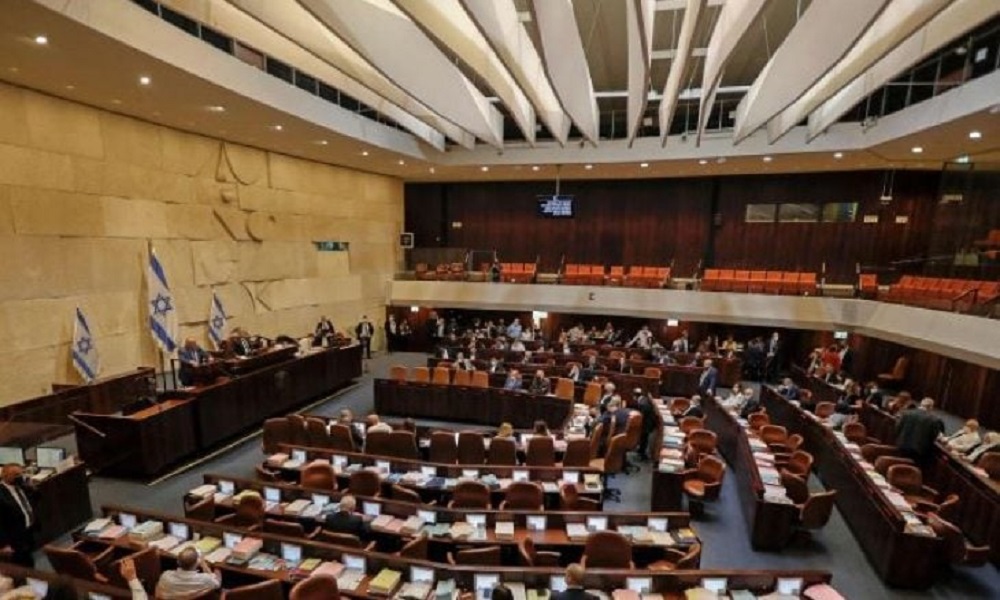Netanyahu Fights to Save Coalition Amid Ultra-Orthodox Draft Crisis
Haredi Backlash Over Military Conscription Law Threatens to Collapse Israeli Government and Force Early Elections.

Watan-Israeli Prime Minister Benjamin Netanyahu is making frantic efforts to prevent the collapse of his ruling coalition amid a growing crisis with ultra-Orthodox (Haredi) parties, angered by his failure to pass a draft exemption law despite repeated promises.
On Wednesday, Netanyahu faces a major political test as the two ultra-Orthodox parties—United Torah Judaism and Shas—warned that if the opposition submits a bill to dissolve the Knesset, their lawmakers may vote in favor of it. Their protest centers on the absence of a new law exempting Haredim from mandatory military service, which they argue is justified by the religious imperative of Torah study—viewed as essential to preserving Jewish identity and the state, on par with military service.
Since Israel’s first elections in 1949, the Haredim (13% of the population and growing rapidly) have played the role of kingmaker, shifting between left- and right-wing coalitions. Their core demand has consistently been exemption from military service. While early Israeli governments allowed limited exemptions, the 1977 rise of Likud and subsequent political bargaining expanded that privilege into near-complete immunity.
However, after 20 months of war and growing national fatigue, public anger—both right and left—has turned against the Haredim’s non-participation.
According to Yedioth Ahronoth, a source in United Torah Judaism said their party will vote with the opposition if a draft law exempting their youth isn’t passed. Their affiliated newspaper Yated Ne’eman echoed this, signaling open defiance. The stance pressures Shas to follow suit, despite its leader Aryeh Deri’s long alliance with Netanyahu and his current attempts to preserve the coalition.
The Haredim fear that military service threatens their religious lifestyle, leading their youth to return secularized. They maintain a closed, insular community, even resisting secular subjects like science and English in schools. However, a minority—especially post-war—now advocate for partial military compromise under strict conditions to preserve religious identity.

Crisis at Boiling Point
Israeli media describes the Haredi crisis as reaching a “boiling point.” Netanyahu is stalling for time, pushing Haredi parties to delay their support for the dissolution bill by at least a week, hoping to negotiate a legal compromise.
Netanyahu has launched a dual strategy—legal and security-based—aiming to soften opposition to a draft law proposal that includes economic penalties for draft dodging, which angers the Haredim. He met with Likud lawmaker Yuli Edelstein, chair of the Foreign Affairs and Defense Committee, urging him to water down the bill to avoid alienating religious allies.
To raise pressure, Netanyahu and his media allies are invoking external threats—such as a potential war with Iran—to discourage Haredi defection. However, former President Donald Trump reportedly told him during a phone call there is no U.S. green light for such escalation.
Within the Haredi bloc, some argue that it’s better to temporarily give up power and head to elections rather than accept a watered-down draft law that undermines decades of political gains. Haaretz cited a source in United Torah Judaism warning, “If we back down today, we become a joke.” Yedioth Ahronoth’s economic editor also believes Haredi lawmakers will likely vote against the government.

Snowball Effect
Intelligence analyst Yossi Melman warned in Haaretz that passing the draft law—even in a form exempting Haredim—could actually cause the coalition’s downfall due to public outrage and internal dissent amid a draining war.
Even if the preliminary Knesset dissolution vote passes, Netanyahu may still try to block further readings and stall the legislative process. But a successful vote today could start a political snowball—marking the beginning of the end for his government.
The opposition remains cautious; under Israeli law, if the bill fails in its initial reading, it cannot be reintroduced for six months. Avigdor Lieberman’s Yisrael Beiteinu party has conditioned its support on a public declaration from United Torah Judaism backing the dissolution, which remains under negotiation.






